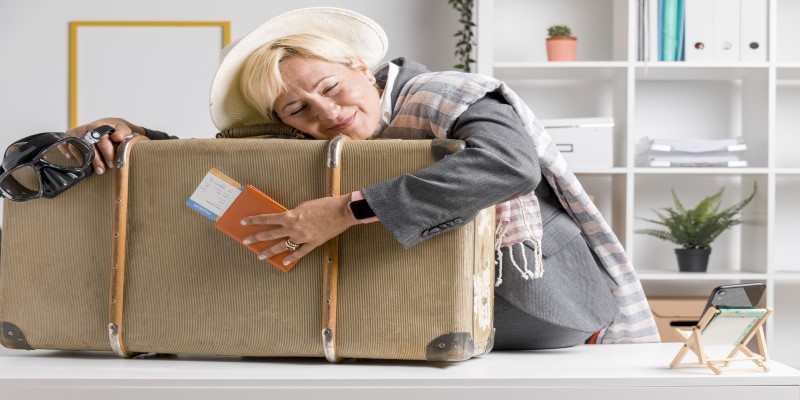Airports are the starting point for many journeys and can be overwhelming due to their bustling nature. Practicing good etiquette is essential not only for your convenience but also for respecting the shared space and the other travelers around you. Understanding what behaviors to avoid can significantly improve your travel experience and that of others. This guide will delve into key aspects of airport etiquette, emphasizing what to avoid for a smoother and more pleasant journey.
Understanding Airport Etiquette
Airport etiquette involves respectful and efficient behavior to ensure a smooth travel experience. This includes being prepared for security checks, keeping noise levels down, and avoiding unnecessary disruptions, such as blocking walkways or cutting in line. Travelers should maintain cleanliness in shared spaces and follow airline policies.
It's also important to be courteous to airport staff and other passengers, avoiding arguments and excessive phone use in sensitive areas. Practicing good airport etiquette helps reduce stress and contributes to a more pleasant environment for everyone.
10 Things Not to Do at the Airport
Airports are bustling environments where smooth and respectful behavior is key to a pleasant travel experience. Navigating these busy spaces with courtesy not only makes your journey easier but also helps others around you. Here are ten crucial behaviors to avoid at the airport to ensure a more efficient and pleasant experience for everyone.
Don't Skip the Preparation
Thorough preparation is key to avoiding unnecessary stress at the airport. This involves checking your flight status, ensuring you have all necessary documents, and packing according to airline guidelines. Forgetting essential items or documents can lead to last-minute panics and delays, not just for you but for other travelers as well. Always double-check your flight details, luggage restrictions, and security requirements to ensure a seamless travel experience from the start.
Avoid Overpacking

Overpacking can lead to cumbersome luggage that's hard to manage and may exceed airline weight limits, causing delays at check-in. It also complicates security screenings and can be a nuisance to others during boarding. To avoid these issues, pack only what you need, focusing on versatile clothing and travel-sized toiletries. Streamlining your luggage not only makes your journey easier but also contributes to a smoother process for everyone around you.
Keep Personal Conversations Private
Airports are public spaces, and loud personal conversations can be intrusive to others. Discussing sensitive topics or speaking loudly on the phone can invade the personal space of those around you. When you need to take a call, find a quieter spot and speak softly. Using headphones for private listening and keeping phone calls brief and quiet helps maintain a respectful and calm environment for all travelers.
Avoid Being Disruptive
Disruptive behavior, such as playing loud music, jumping queues, or being rude to staff, can negatively affect everyone's experience. Airports rely on cooperation and respect to function smoothly. Ensuring your behavior is considerate, such as keeping noise levels down and following the rules, helps maintain a peaceful environment. Parents should also ensure their children are entertained and not causing disruptions, as this can significantly impact the stress levels in busy terminal areas.
Don't Ignore Instructions
Following instructions from airport and airline staff is crucial for safety and efficiency. Ignoring guidelines, whether during security checks or boarding, can lead to delays and potential safety risks. These instructions are designed to keep everyone safe and ensure the airport operates smoothly. Listening carefully and adhering to these directions not only ensures your safety but also contributes to a more efficient process for all travelers.
Refrain from Making a Mess
Keeping the airport clean is a shared responsibility. Leaving trash in seating areas, restrooms, and dining spaces creates an unpleasant environment. Always use the bins provided and consider tidying up after yourself. Reporting any cleanliness issues to airport staff helps maintain a clean and inviting space for everyone. This small effort contributes to a better experience for all travelers and shows respect for the communal areas we all share.
Don't Block the Moving Walkways
Moving walkways are designed to help people move quickly through long concourses. Standing still and blocking the way can cause congestion and frustration. Always stand to one side if you're not walking, allowing others to pass freely. This simple act of courtesy ensures smooth foot traffic and helps everyone get to their destinations more efficiently. By being mindful of this, you contribute to a more organized and pleasant airport experience for everyone.
Don't Neglect Personal Space

Respecting personal space is crucial in crowded airport environments. Avoid actions that invade others' space, such as standing too close in lines, bumping into people with your luggage, or using seats for your bags when seating is limited. Being mindful of your surroundings and maintaining a respectful distance ensures comfort for everyone. This consideration helps reduce stress and makes the airport experience more pleasant for all travelers.
Avoid Unnecessary Complaints
While addressing legitimate concerns is important, constantly complaining about minor inconveniences can add to the stress of traveling. Airports can be busy and overwhelming, but patience and understanding go a long way. Assess the severity of your issue before voicing it, and remember that airport staff are often doing their best under challenging conditions. Keeping a positive attitude and being patient helps create a more pleasant environment for everyone.
Don't Forget to Be Polite
Politeness goes a long way in enhancing everyone's travel experience. Simple gestures like saying "please" and "thank you," acknowledging gate agents, and being patient with security staff can significantly improve the overall atmosphere. A little kindness can foster a culture of respect and cooperation, making the airport experience more enjoyable. By being polite and considerate, you set a positive example and help maintain a friendly and efficient environment.
Conclusion
Good airport etiquette is about more than just following rules; it's about contributing to a positive, efficient, and considerate traveling environment. By avoiding these common pitfalls, you can ensure a smoother and more enjoyable start to your journey while also making the airport a better place for everyone passing through. Remember, every traveler has a role to play in creating a pleasant airport experience.



